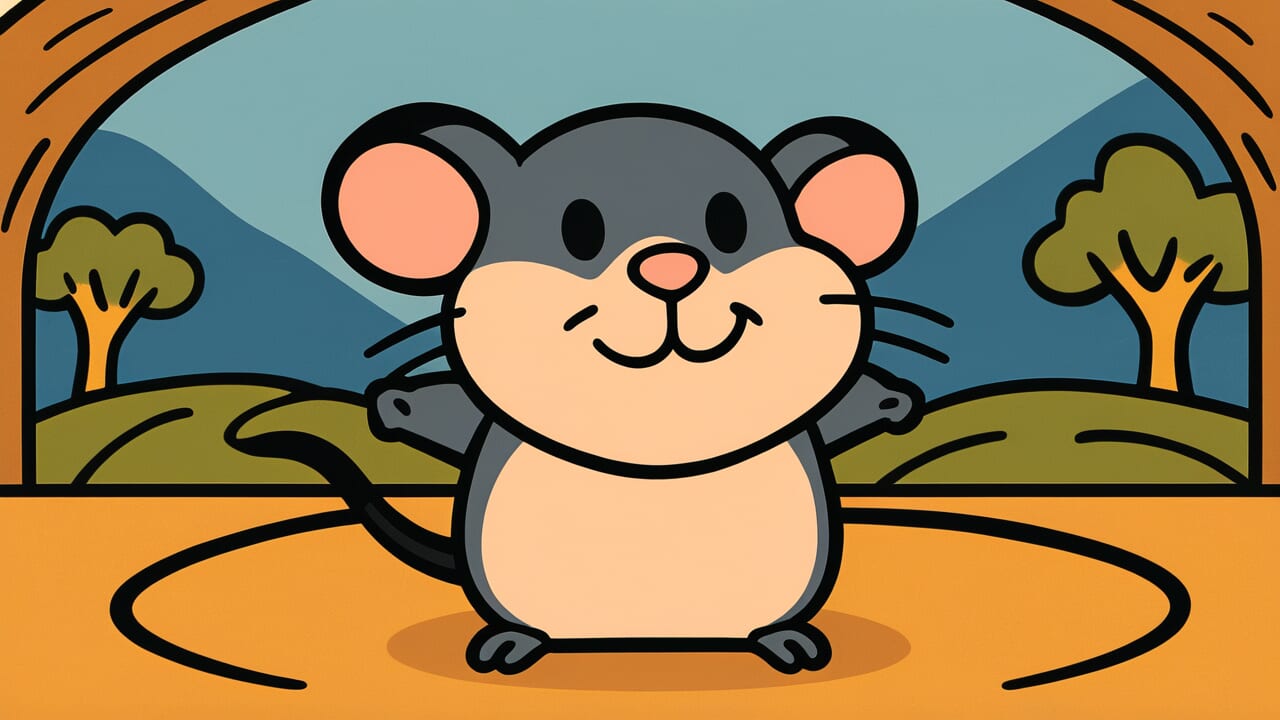How to Read “Even a mouse lives sixty years”
nezumi mo korokujū
Meaning of “Even a mouse lives sixty years”
“Even a mouse lives sixty years” means that even people without special talents or abilities can play a meaningful role if they accumulate experience over many years.
This proverb encourages people who didn’t show outstanding talent in their youth or those who tend to be underestimated by others.
It’s also used to emphasize the value of experience. The contrast with a “mouse,” something seemingly insignificant, effectively shows that everyone has potential for growth.
In modern times, there’s a tendency to value immediate results and young talent. However, this proverb teaches us the importance of a long-term perspective.
The idea that steady accumulation is what truly develops a person is wisdom that today’s impatient society should remember.
Origin and Etymology
There are no clear written records about the origin of this proverb. However, we can make interesting observations from how the phrase is constructed.
The key lies in the expression “korokujū” (small sixty). This means “about sixty years old,” where “ko” (small) carries the nuance of “approximately” or “around.”
For humans, sixty years was considered a long life during the Edo period. It represented an age when someone had accumulated rich experience.
But why a “mouse”? Mice have long lived close to humans, yet they were looked down upon as pests.
Small and seemingly insignificant, they often appear in proverbs and idioms as representatives of trivial things. The core of this proverb lies in the contrast: even a mouse can gain wisdom and experience if it lives sixty years.
Real mice only live a few years, so this is purely metaphorical. It reflects the warm perspective of our ancestors: even those without talent or status can make their experience valuable.
This proverb embodies a Japanese value system that recognizes experience over ability.
Usage Examples
- He was unreliable as a newcomer, but as “even a mouse lives sixty years” suggests, he’s now indispensable to our department
- Even without talent, “even a mouse lives sixty years”—my twenty years of experience in this job is my treasure
Universal Wisdom
The proverb “Even a mouse lives sixty years” contains deep insight into human growth.
We tend to be captivated by visible talent and spectacular achievements. But life’s truth exists in something more modest, on a longer timeline.
Small daily accumulations eventually emerge as great strength. Our ancestors conveyed this obvious yet easily forgotten truth through the familiar image of a mouse.
This proverb has been passed down because most of human society belongs to the “mouse” side. Natural-born geniuses are rare.
Many people worry about their lack of talent and feel discouraged when comparing themselves to others. At such times, this proverb tells us, “That’s perfectly fine.”
Perhaps the essential value of humans lies not in momentary brilliance but in the power to continue. Not giving up, accumulating experience—these things themselves are precious.
Time flows equally for everyone. The experience gained within it becomes treasure that no one can take from you. This universal hope is the heart of this proverb.
When AI Hears This
Mice weigh only about 20 grams, yet they’ve adapted to nearly every environment on Earth. This is a textbook example of “niche construction” in ecology.
Niche construction is the ability of organisms to create environments suited to their survival. Because mice are small, they can use spaces large animals cannot enter—building gaps, underground areas.
They can survive on small amounts of food. In other words, they’ve turned “smallness,” an apparently disadvantageous trait, into a weapon for opening unique survival territories.
Even more interesting is their use of time. Mice have short lifespans but fast reproduction cycles—they can give birth over five times a year.
This means rapid generational turnover. They can genetically adapt to environmental changes quickly. What takes humans sixty years of experience, mice accumulate as a species in just a few years.
Individual mice are short-lived, but the learning speed of the species as a whole is astonishingly fast.
The essence of this proverb is the paradox that the constraint of smallness actually enables two powerful strategies: “nimble adaptability” and “learning through rapid generational change.”
Even with a small body, if you make time your ally, you can become stronger against environmental change than large organisms. This is insight that scientifically validates the survival strategy of the weak.
Lessons for Today
What this proverb teaches modern people is the courage not to rush.
In today’s society, where we see others’ success on social media and are expected to produce immediate results, our own growth can feel slow and cause anxiety.
However, the small experiences you’re accumulating today are definitely building up inside you. They are your treasure alone, requiring no comparison with anyone else.
What matters is continuing to walk at your own pace. Even without flashy talent, by steadily continuing, you can become someone people say they can’t do without.
In the workplace, at home, in your community—there’s value that only people who stay involved for the long term possess.
If you can’t feel confident in your abilities right now, that’s okay. Keep going. Keep learning.
Ten years from now, twenty years from now, you’ll have grown beyond what you can imagine today. Time is on your side.
Let’s accumulate the treasure called experience, day by day.



Comments